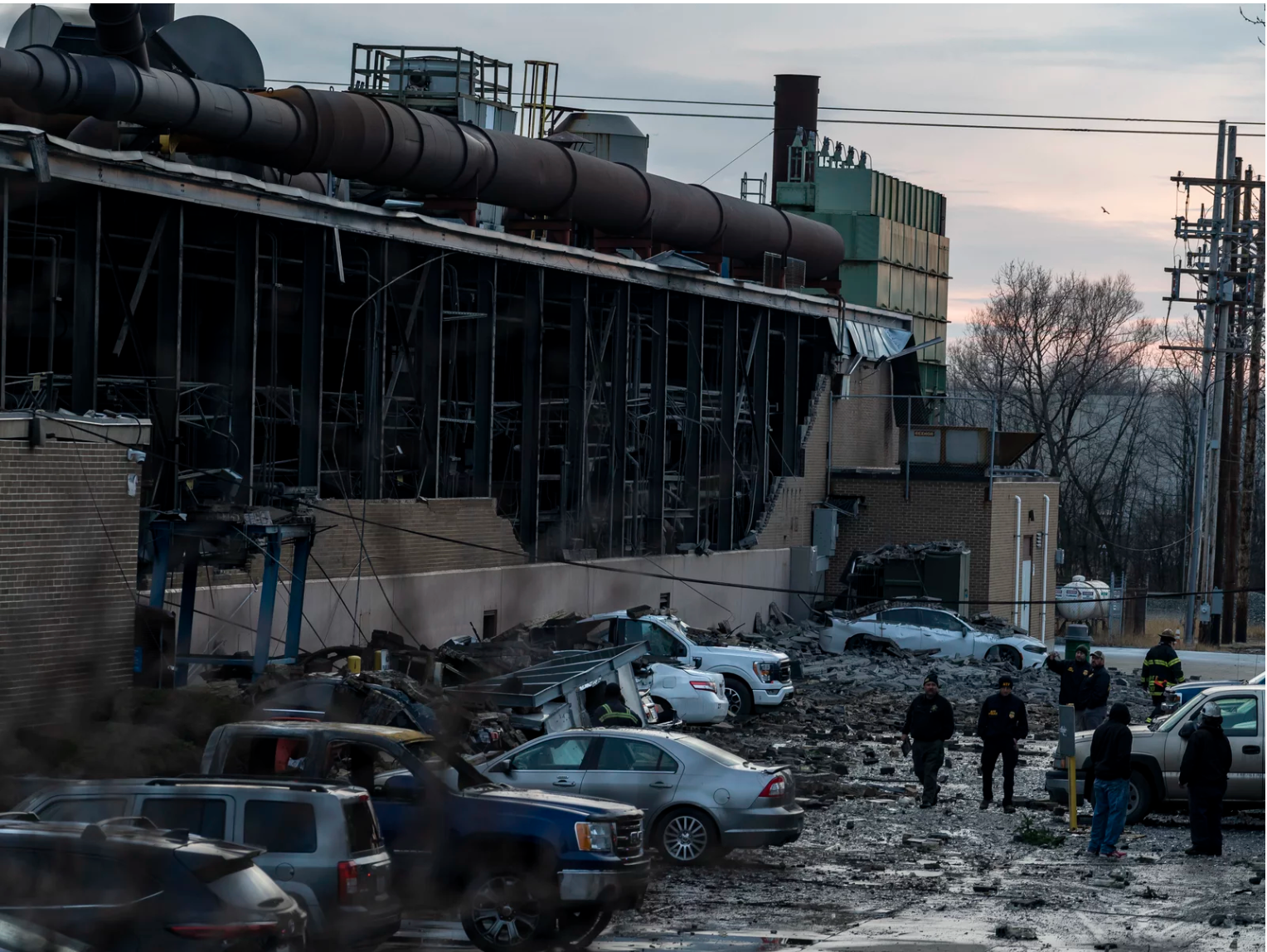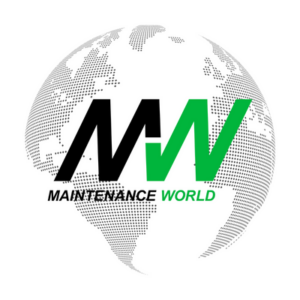33 Reliability Engineering Certifications to Further Your Career
Elizabeth Ruiz, Editor, Maintenance World
Posted 3/6/2024
Reliability Engineers and Maintenance Technicians are in high demand in 2024, and the competition is tough. What can you do to set yourself apart from other candidates when applying for a reliability engineering or technician position? Continuing education and earning certifications can set you up as the best candidate for a new career or help you move up the ladder in the company you are working for now.
This week’s newsletter will cover the best certifications for reliability engineers and maintenance technicians and tell you about programs to get certified. There are many to choose from. Decide which are best for you and your career path.
Engineer in Training Certification (EIT)

This certification is for new graduates getting started on their career path. The EIT is a pre-licensure program that provides you with an official document and ID number after passing the Engineer in Training Exam in your state.
The first exam to be taken is the Fundamentals of Engineering Exam (FE Exam). After passing this exam and working for four years post college, you will take the Principles and Practice of Engineering (PE Exam) in the discipline of your choice to become a licensed professional engineer (P.E.).
To take the FE Exam, you must pay a $225 exam fee to NCEES. The exam is 110 questions, and the exam appointment time is 6 hours long.
Sign up for your exam with the NCEES.
Master Certified Electronics Technician (CET)
Certified Biomedical Equipment Technician (CBET)
Electrical Technician Certification
Certified Maintenance and Reliability Technician (CMRT)
Certified Maintenance and Reliability Professional (CMRP)

According to the Society for Maintenance & Reliability Professionals (SMRP), their CMRP program aims to certify the knowledge, skills, and abilities of maintenance, reliability, and asset management professionals. It is accredited by the American National Standards Institute (ANSI), which follows ISO’s globally recognized standards. The test measures aptitude within the 5 pillars of SMRP’s Body of Knowledge: Business & Management, Equipment Reliability, Manufacturing Process Reliability, Organization & Leadership, and Work Management.
Any maintenance and reliability professional can take the CMRP exam, regardless of educational or work background.
Visit SMRP online learn more about fees and eligibility requirements.
Certificate for Apartment Maintenance Technicians (CAMT)
Certified Manager of Maintenance (CMM)
Project Management Professional (PMP)
Certified Reliability Engineer (CRE)
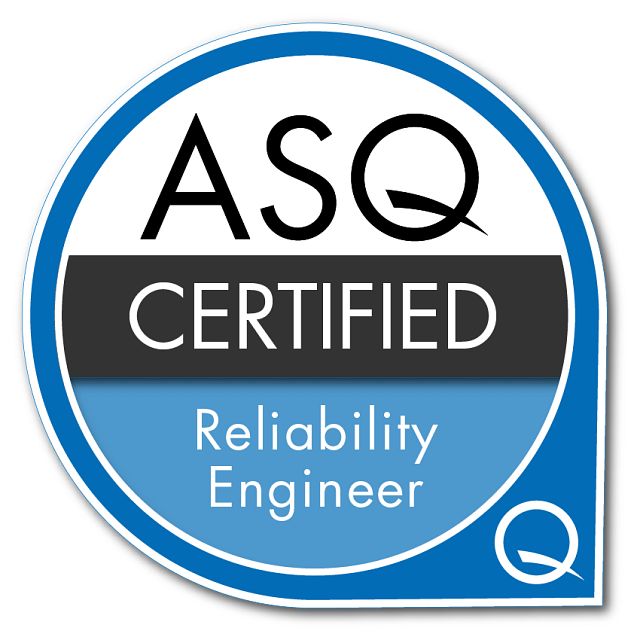
This certification, granted by the American Society for Quality, focuses on understanding the principles of performance evaluation and prediction to improve safety, reliability, and maintainability of products and/or systems.
It includes but is not limited to design review and control; prediction, estimation, and apportionment methodology; understanding human factors in reliability; planning, operation, and analysis of reliability testing and field failures, including mathematical modeling; and the ability to develop and administer reliability information systems for failure analysis, design, and performance improvement and reliability program management over the entire product life cycle.
Candidates must have worked in a full-time, paid role for 8 years pertaining to one or more of the areas of the Body of Knowledge and have spent 3 years on the job in a “decision making position.
CRE is accredited by the ANSI under the ISO Standard 17024.
For exam details, prep. fees, and the full eligibility requirements, visit the CRE page on the ASQ’s website.
Certified Maintenance Manager (CMM)
Administered by the Association of Asset Management Professionals and based on Uptime Elements Framework/CMM BOK, it is aimed at developing corporate leaders and managers who make good decisions and sustain highly reliable assets. It focuses on time and on target maintenance, continuous improvement, TMP and empowerment, and sustainable financial decision making.
Click here for more information about registration and testing opportunities.
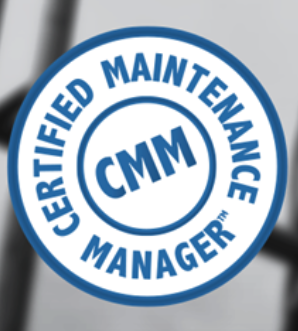
Certified Asset Management Professional (CAMP)
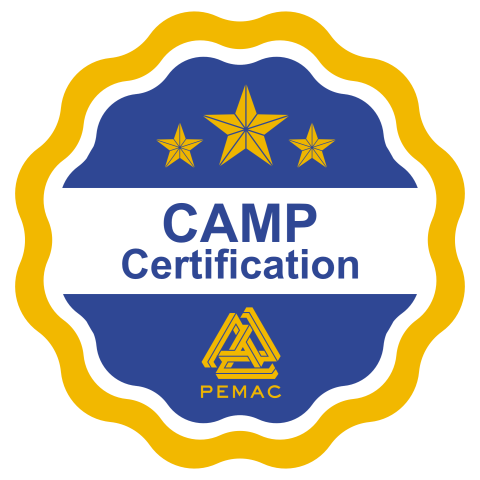
Certifying organization: Asset Management Association of Canada (PEMAC)
The CAMP certification is designed for mid-career professionals from a variety of backgrounds (IT, engineering, and business management) who have responsibility for managing decisions with respect to the core life cycle functions such as design, selection, operation, maintenance of an organization’s assets.
To qualify for CAMP certification, complete the education program from AMP with at least 60% or demonstrate equivalent education and experience in compliance with the PEMAC Prior Learning Assessment and Recognition (PLAR) program.
For more information about eligibility, fees, and continued education requirements, click here. Information courtesy of PEMAC.
Maintenance Management Professional (MMP)
Another reliability engineering certification by PEMAC, the MMP is best suited to professionals in either management or supervisory positions who handle operations and/or maintenance of complex or critical physical assets. Professionals must successfully complete the MMP education program or demonstrate equivalent knowledge through the PLAR program. The courses include modules on integrated strategy for maintenance management, financial management for the maintenance manager, and maintenance work management.
Click here for more information about the certification, renewal, and opportunities related to earning it. Information courtesy of PEMAC.
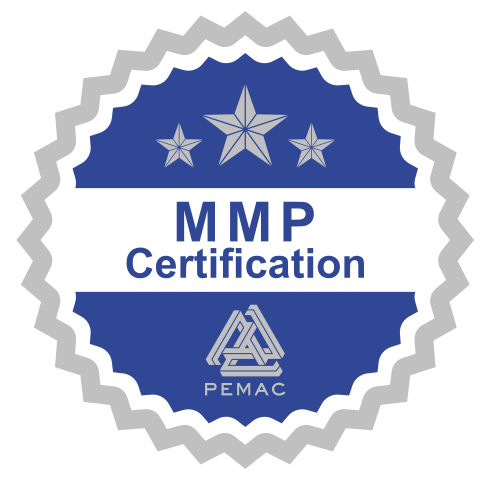
Certified Technical Specialist in Asset Management (CTAM)
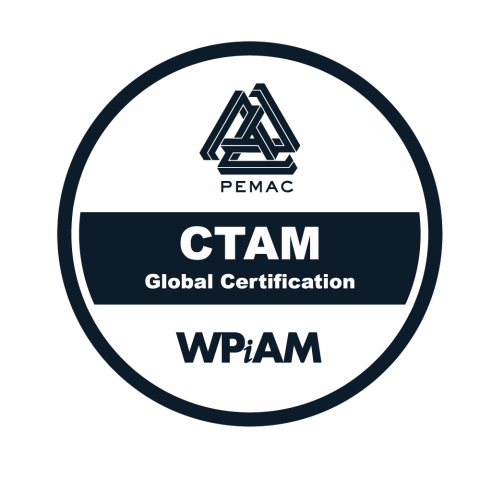
Aligned with the WPiAM global certification scheme (GCS) the Certified Technical Specialist in Asset Management (CTAM) certification is awarded to professionals who have shown knowledge and competency within a specific domain of asset management while being tasked with delivering against the asset management objectives of their organization.
As part of PEMAC’s suite of tiered, experienced-focused certifications, the CTAM certification marks the first milestone within this globally recognized credential scheme.
This is followed by CPAM and CSAM certifications, both of which have a higher level of assessment criteria, providing a clear career progression path for asset management professionals around the world, seeking a certification that is equivalent and recognized globally.
Earn your CTAM to demonstrate that you have:
Knowledge, competency, and comprehension of asset management (AM), responsible for leading the application and management of an element of a specific Domain within an Asset Management Framework (AMF) and enhancing the organization’s effectiveness in executing all relevant activities.
This Requires:
- Awareness and understanding of the breadth of recognized Domains of AM, and their inter-dependency within an AMF.
- Well-developed skills within an area of work responsibility in an operating Domain of AM.
- Awareness and understanding of the key requirements of an integrated AMF; and
- Awareness and understanding of core AM roles and responsibilities, their inter-dependency, and the key benefits of integrated application
Relating to the area(s) of their Proficiency, CTAM certificants:
- Inform aspects of the AMF; and
- Lead a team in application or be recognized as a fully competent technical professional, technician, or tradesperson.
Note: PEMAC’s MMP and AMP educational programs provide participants with valuable knowledge that can be used as evidence in support of one’s application for a CTAM certification.
Click here to register. Information courtesy of PEMAC.
Certified Practitioner in Asset Management (CPAM)
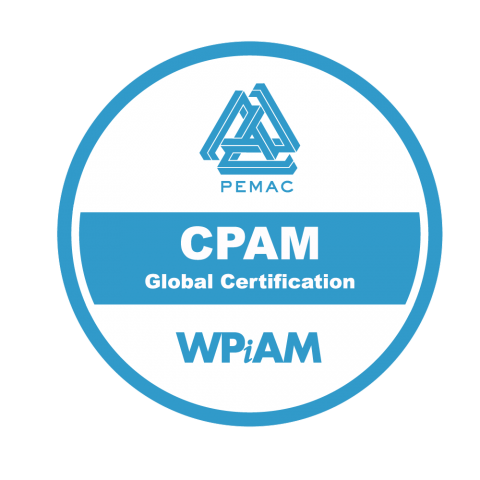
This PEMAC certification was created for professionals who want to earn global certification of knowledge and competency in establishing, updating, and managing oversight of the application of a specific Domain within an integrated Asset Management Framework. With this certification, you will be qualified to prepare and recommend policy, objectives, strategy, tactics, processes, and procedures to drive application and improvement.
Aligned with the WPiAM global certification scheme (GCS) the Certified Practitioner in Asset Management (CPAM) reliability and engineering certification is awarded to professionals who have shown knowledge and competency to take responsibility for the establishment, updating, and management oversight of the application of a Domain of AM that is significant to the organization’s AMF across a significant area of business. Importantly, this framework must inform, and be informed by, the organization’s strategic objectives.
As part of PEMAC’s suite of tiered, experienced-focused certifications, the CPAM certification currently marks the second milestone within this tiered system, preceded by CTAM and followed by the CSAM certification which has a higher level of assessment criteria, providing a clear career progression path for asset management professionals around the world, seeking a certification that is equivalent.
Click here for more information about eligibility and registration requirements. Information courtesy of PEMAC.
Certified Senior Principal in Asset Management (CSAM)
Certified Senior Principal in Asset Management is for those who want global certification in design, establishment, updating, and management oversight of the application of an AMP in a significant business area relating to an asset portfolio.
Aligned with the WPiAM global certification scheme (GCS) the Certified Practitioner in Asset Management reliability engineering certification is awarded to professionals who have shown knowledge and competency to take responsibility for the establishment, updating and management oversight of the application of a holistic and integrated AMF across a significant area of the organization’s business, informed by the organization’s strategic objectives.
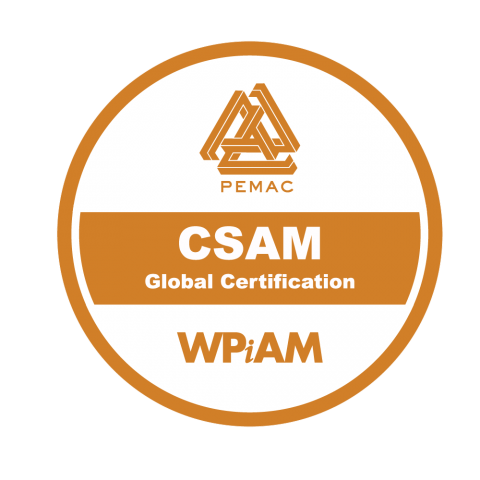
This certification is applicable to practitioners (or expert advisors thereto) responsible for the establishment, updating and management oversight of the application of a holistic and integrated AMF across a significant area of the organization’s business, informed by the organization’s strategic objectives.
For more information about required skills and eligibility requirements, click here. Information courtesy of PEMAC.
Certified Asset Management Assessor (CAMA)

The Certified Asset Management Assessor (CAMA) Certification establishes credentials in asset management knowledge and comprehension all over the world. WPiAM develops, maintains, and administers the exam. It certifies that a professional is able to apply asset management principles, terminology, and benefits in their organizations to any type of asset.
Applicants must have a minimum of 5 years working experience in asset management, submit a professional profile for review and approval, have a working knowledge of ISO 5500X Standards, and understand the GFMAM Competency Specification for an ISO 55001 Asset Management System Auditor/Assessor. PEMAC offers an extensive course to take before tackling the exam.
Click here to find out more and register for your CAMA exam.
Building Systems Maintenance Certificate (SMC)
International Maintenance Institute (IMI) Certification
Asset Reliability Practitioner
Site Reliability Engineering (SRE) Practitioner
IBM Defines Site Reliability Engineering as: Site reliability engineering (SRE) uses software engineering to automate IT operations tasks such as production system management, change management, incident response, even emergency response that would otherwise be performed manually by systems administrators (sysadmins).
The principle behind SRE is that using software code to automate oversight of large software systems is a more scalable and sustainable strategy than manual intervention – especially as those systems extend or migrate to the cloud. (IBM)
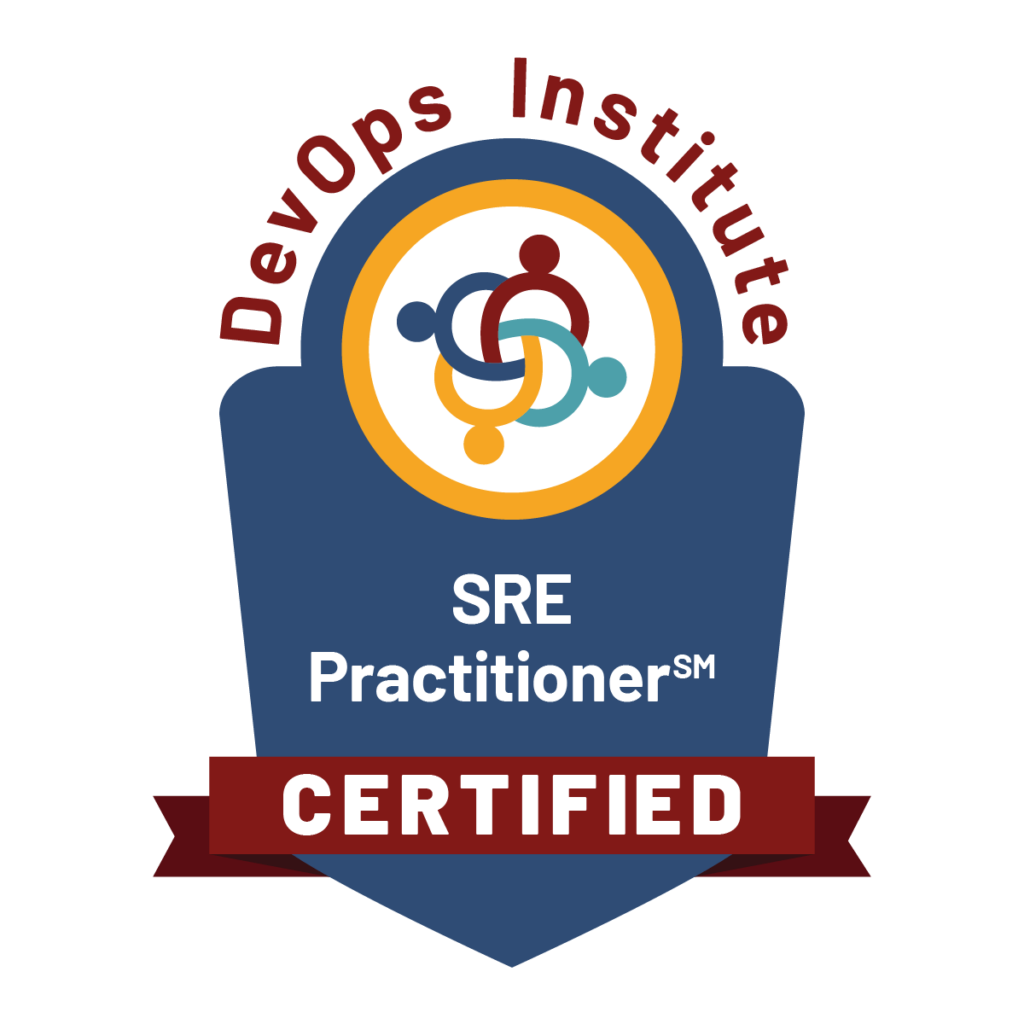
DevOps Institute certifies the SRE Practitioner certification. You must recertify every 2 years to maintain the title.
You will learn a practical view of how to successfully implement an SRE culture in your workplace, curate data using AI to move from reactive to proactive and predictive incident management, and major incident response responsibilities, among other skills.
You will bring enhanced stability and reliability of services to your workplace and have a higher understanding of practical implementation of SRE culture.
Click here to find out about requirements and eligibility to become an SRE Practitioner.
Certified Six Sigma Green Belt (CSSGB)
Certified Quality Engineer (CQE)
Certified Reliability Leader (CRL)
This exam and reliability engineering certification from The Association of Asset Management Professionals (AMP) covers knowledge related to reliability designed to create economic prosperity, environmental sustainability, and social responsibility. The exam contains questions on reliability engineering for maintenance, asset management, asset condition management, work execution management, and reliability leadership.
Click here for more information about registration and testing opportunities.
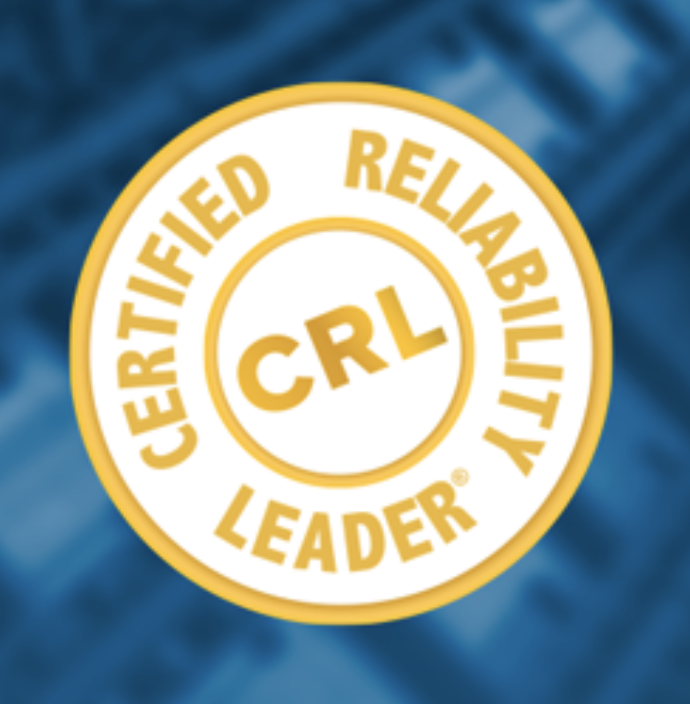
Certified Metalworking Fluids Specialist
Certified Oil Monitoring Analyst I and II
Machine Lubrication Analyst I-III
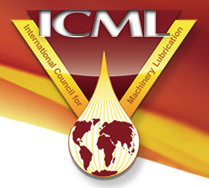
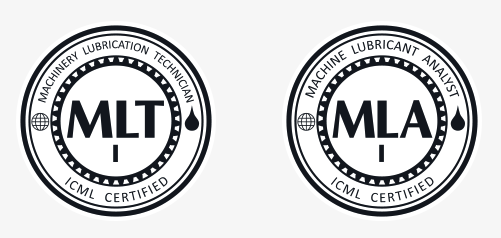
Starting with Machinery Lubrication I (ML I), you will get a foundation in lubrication best practices and product knowledge. You will learn industry-proven methods for using lubricants and gain understanding of oil analysis and why it is necessary.
See course availability from Noria here. Certifiying body is International Council for Machinery Lubrication.
ICML is a global non-profit organization dedicated to helping lubrication practitioners succeed in their professional careers. ICML certification exams are administered in accordance with ISO 18436 and are available worldwide in multiple languages and in both paper and online formats. We coordinate our exam schedule with a network of independent training partners. Certifications include Machinery Lubrication Technician, Machine Lubrication Analyst, Machinery Lubrication Engineer, and more.
Laboratory Lubrication Analyst I-III
Machinery Lubrication Technician I and II
Machinery Lubrication Engineer
Certified Lubrication Specialist
Vibration Analyst I-IV


Why become a certified vibration analyst? Alan Friedman with Zenco Vibrations says if you work in the maintenance or reliability field, becoming a certified vibration analyst can be a valuable investment in your career. Not only does it demonstrate your expertise and proficiency in analyzing machinery vibration, but it can also open up new career opportunities and increase your earning potential.
To become certified, an individual must have a certain amount of hands-on experience, take a course, and pass an examination that tests their knowledge of vibration analysis theory, instrumentation, and data analysis. Students may take the courses and exams prior to gaining hands-on experience, it will be recognized that they have passed the exam. When they have the work experience, they will receive their certification. (MW)
Categories I-III Courses and certification available through Zenco Vibrations
Categories I-IV Courses and certification available through The Vibration Institute
Sources: Reliability Engineering Certifications
What are the Top Reliability Engineering Certifications? Upkeep Blog. Published on upkeep.com.
10 Maintenance Certifications to Grow as a Professional. Limble CMMS Blog. Bryan Christiansen. February 9, 2024. Published on limblecmms.com.
Best Reliability Engineer Certifications. Zippia The Career Expert Blog. July 21, 2023. Published on zippia.com
Best 10 Reliability Engineer Certifications (Descriptions). Indeed Career Guide Blog. Indeed Editorial Team. February 3, 2023. Published on indeed.com.
What is Site Reliability Engineering (SRE)? IBM Blog. Published on ibm.com.
PEMAC:
DevOps Institute:
Site Reliability Engineering (SRE) Foundation
Site Reliability Engineering (SRE) Practitioner
AMP:
Certified Maintenance Manager Blog Post
CMM Exam Info
Other sources linked below and through article:
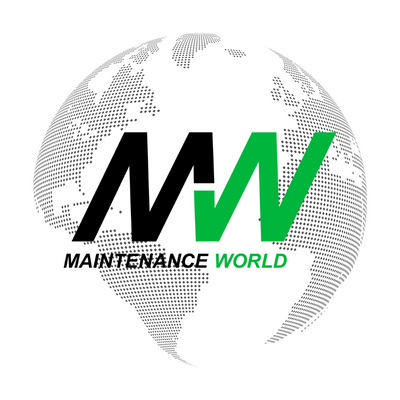
Midweek with Maintenance World
Looking for a midweek break? Keep up with the latest news brought to you by the Maintenance World Crew.
Related Articles

Cardinal Manufacturing, Helping to Bridge the Manufacturing Skills Gap

South Carolina Ranked as the #1 State for Manufacturing

The Decade of American Reshoring
Lost Radioactive Capsule Proves Preventive Maintenance is as Important as Ever
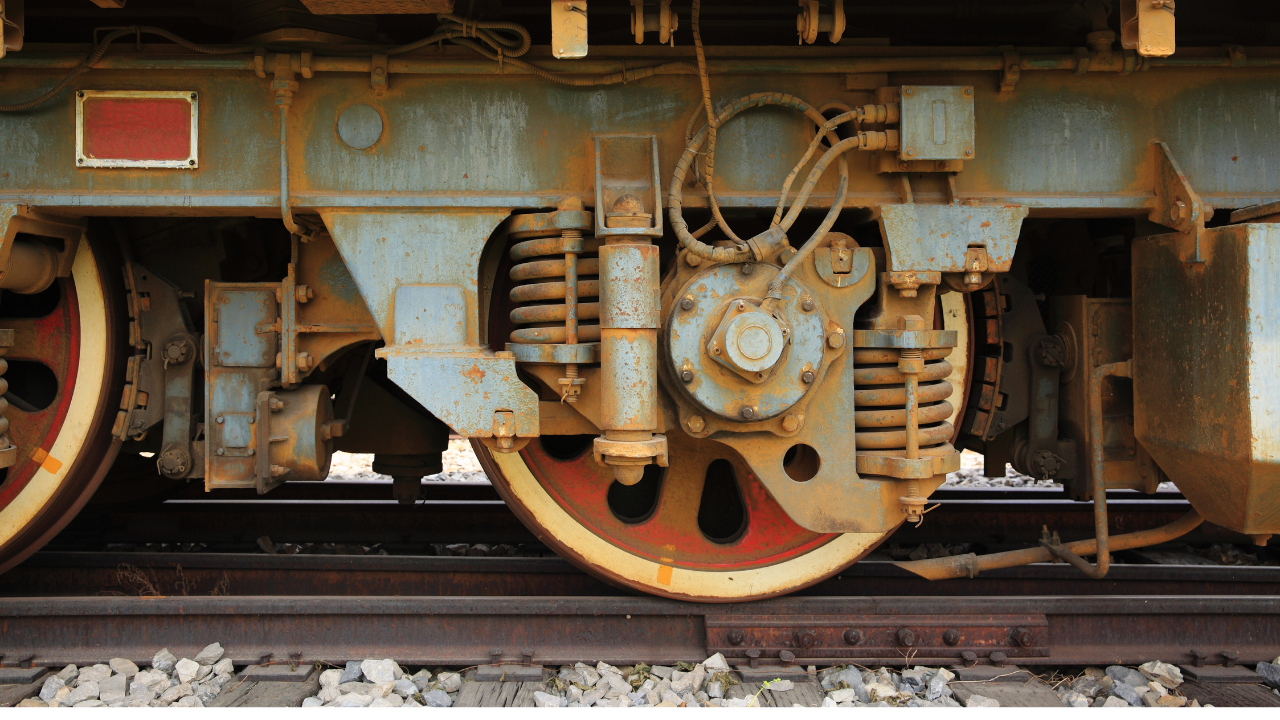
HBD Condition Monitoring Devices at the center of Ohio Derailment
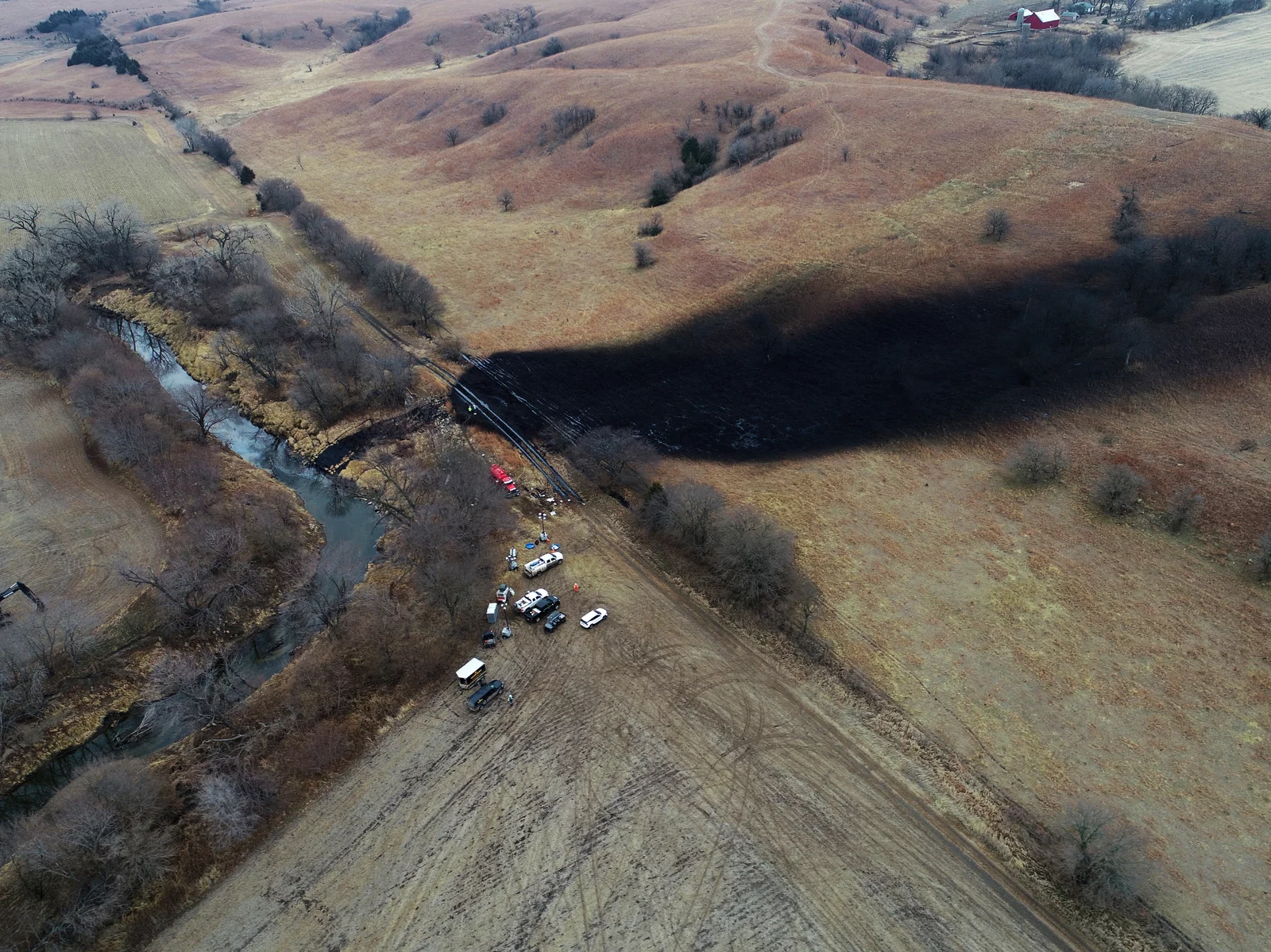
Failure Analysis Uncovers the Cause of the Keystone Oil Spill
